Kazahstan
Președintele Tokayev se concentrează pe diversificarea economică și pe o economie mai ecologică la Consiliul Investitorilor Străini

Președintele kazah Kassym-Jomart Tokayev (foto) spoke about the need for greater economic diversification and greener solutions in the economy at the 33rd session of the Foreign Investors’ Council hosted June 10 by the Kazakh capital Nur-Sultan, reported the Akorda press service, scrie Assel Satubaldina in Afaceri.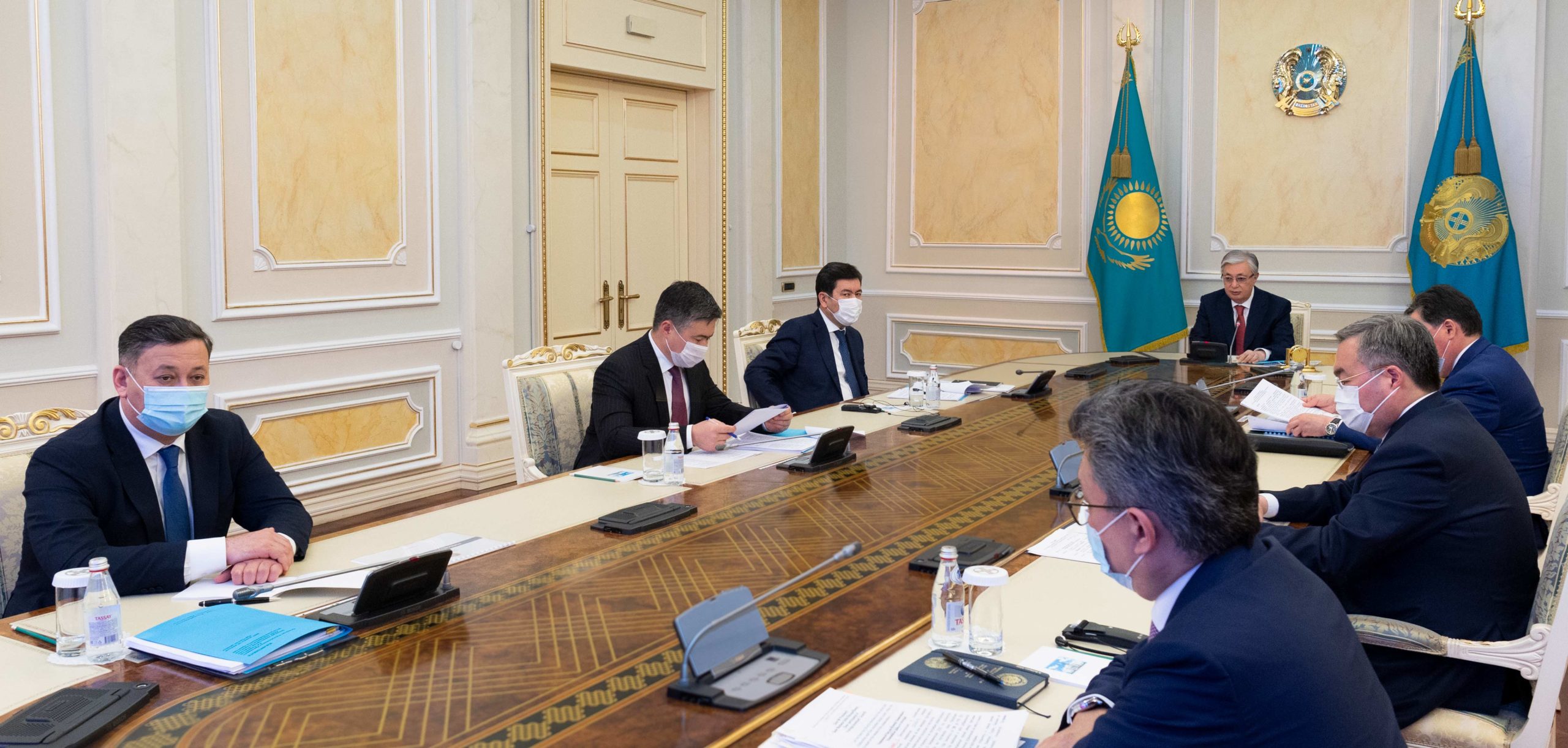 President Tokayev and senior officials during the meeting. Photo credit: Akorda press service
President Tokayev and senior officials during the meeting. Photo credit: Akorda press service
The session was attended by senior Kazakh officials, heads of large multinational companies, heads of government agencies and representatives of international organizations.
The council that consists of heads of 37 large transnational companies and international organizations as well as heads of key ministries has served as an important platform for connecting major foreign investors in Kazakhstan and the government and helping the nation to improve the investment climate.
This year’s meeting focused on boosting noncommodity exports as well as post-crisis tax incentives, human capital development, subsoil use and digitization.
“Kazakhstan, as an economic system, cannot rely only on domestic investment, domestic demand and export of raw materials. Our country will continue the policy to ensure the most favorable environment to attract quality foreign investments. We are determined to maintain our leadership in the region and in the Commonwealth of Independent States (CIS),” said Tokayev in his opening remarks.
He stressed the need to develop exports of processed products, which, as he described, is a guarantee against volatile prices for raw materials, an indicator of the economy’s capacity to produce quality demanded goods and services.
În ultimul an, comerțul global a suferit pierderi dramatice. Cifra de afaceri a comerțului exterior din Kazahstan a scăzut cu 13% anul trecut, ajungând la 85 de miliarde de dolari.
Despite this downward trend, Kazakhstan’s noncommodity exports showed a lesser decrease of 2.8 percent to $15 billion and foreign direct investments made $18 billion.
Anul trecut a fost implementată 41 de proiecte de investiții în valoare de 1.6 miliarde de dolari și care implică investitori străini.
„Pe măsură ce economia globală își revine, Kazahstanul este și el pe drumul său către redresarea economică. Guvernul nostru prognozează o creștere de cel puțin 3.5% și ne așteptăm la posibilitatea unei creșteri mai mari ”, a spus Tokayev. 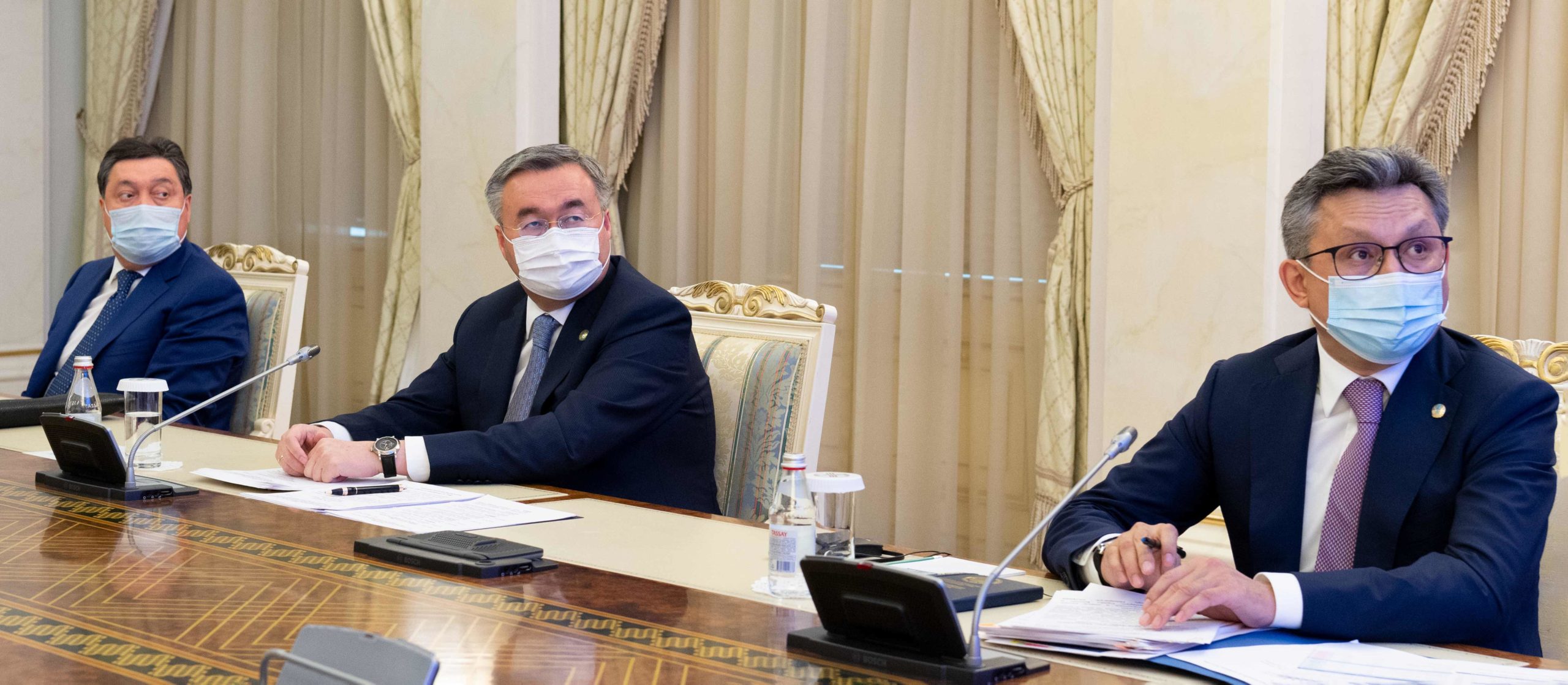 From L to R: Kazakh PM Askar Mamin, Deputy PM and Foreign Minister Mukhtar Tileuberdi and Minister of Trade and Integration Bakhyt Sultanov. Photo credit: Akorda press service.
From L to R: Kazakh PM Askar Mamin, Deputy PM and Foreign Minister Mukhtar Tileuberdi and Minister of Trade and Integration Bakhyt Sultanov. Photo credit: Akorda press service.
Exports remain a priority for the Kazakh economy, said Tokayev, noting that the utmost potential is yet to be unlocked for Kazakhstan.
The target for Central Asia’s largest economy is $41 billion of noncommodity exports by 2025. To support this target, Kazakhstan allocated nearly $1.2 billion.
Tokayev agreed with the Asian Development Bank proposal to digitize the export support system.
“We have to agree that digital transformation reduces trade costs, especially for small and medium-sized businesses. The Ministry of Trade (and Integration) and Digital Development (Innovations and Aerospace Industry) should formulate proposals together with the Asian Development Bank,” said Tokayev.
Boosting agricultural exports
The participants noted Kazakhstan could benefit from developing and promoting agricultural exports. Vast natural resources allow the country to be a world leader in the exports of agricultural products, but more could be done.
Ashok Lavasa, Vice-President for Private Sector Operations and Public-Private Partnerships at the Asian Development Bank, said that the sector could serve as a driver of economic growth. 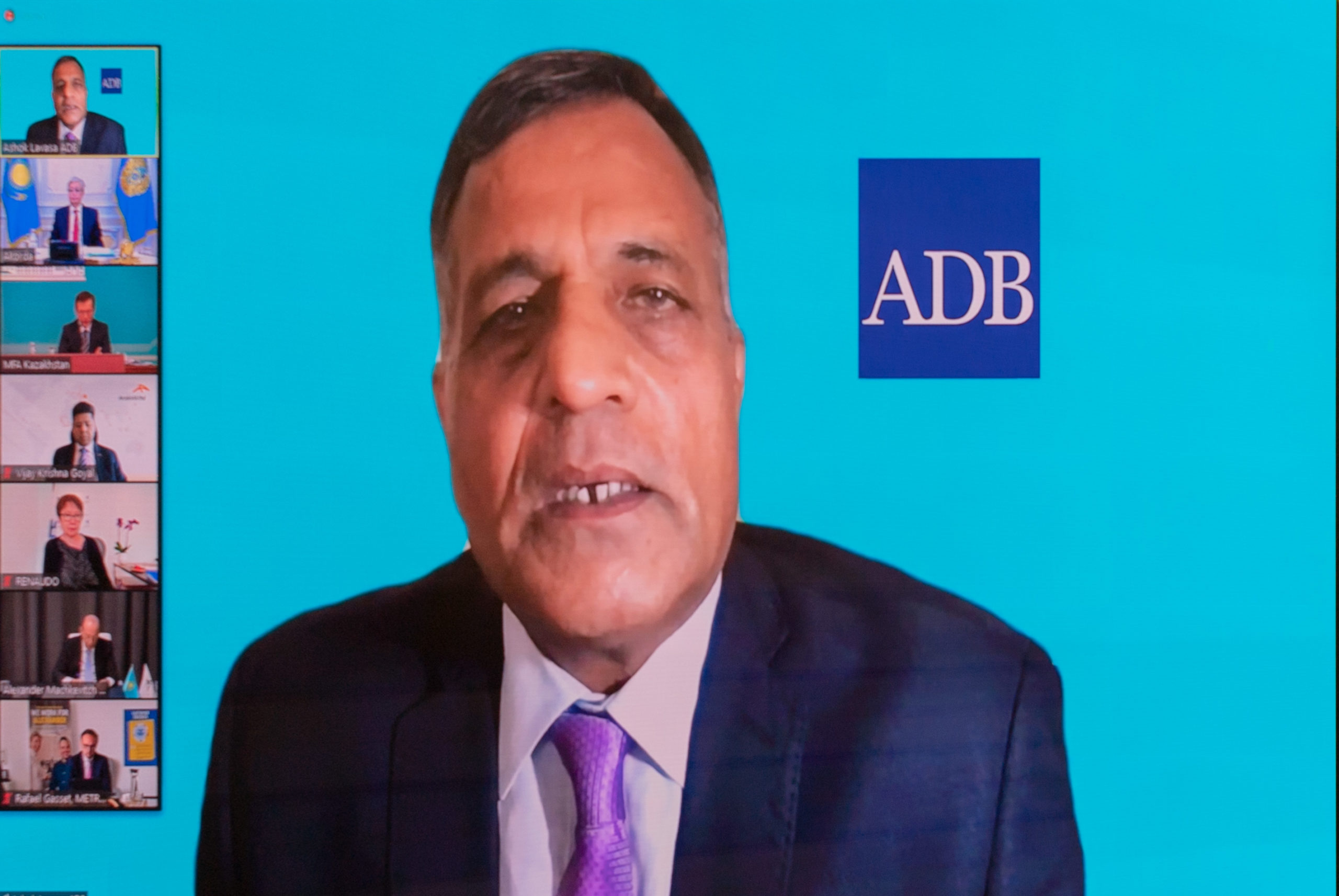 Ashok Lavasa from the ADB during a video conference. Photo credit: Akorda press service
Ashok Lavasa from the ADB during a video conference. Photo credit: Akorda press service
“The agribusiness sector is crucial to enabling more economic growth, job creation, and economic diversification. While agribusiness has enjoyed substantial government subsidies, this has yet to lead to substantive gains in productivity. The sector’s competitiveness and access to market-based financing with suitable tenors should be enhanced,” he said.
Greater railway connectivity
În timpul sesiunii, Tokayev a vorbit și despre necesitatea de a stimula sistemul feroviar al Kazahstanului. În 2020, volumul transportului feroviar de tranzit a crescut cu 17%.
Cinci coridoare feroviare internaționale trec pe teritoriul Kazahstanului, ceea ce oferă țării o oportunitate de a-și valorifica locația geografică strategică.
91% din containerele transportate în 2020 prin teritoriul Kazahstanului au reprezentat ruta China-Europa-China.
„Putem spune cu siguranță că Kazahstanul a devenit într-adevăr o verigă cheie în transportul terestru între Asia și Europa. Kazahstanul este un partener important și de încredere în implementarea proiectului de centură și drum din China ”, a spus Tokayev.
But the efficiency and quality of transport and logistics services should be improved, including at Khorgos.
Greener technologies
Tokayev reaffirmed the country’s commitment to introducing cleaner technologies and accelerating the efforts as the country transitions to a green economy.
Kazakhstan has great opportunities in this area, according to Andy Baldwin, EY Global Managing Partner – Client Service.
“In the context of the inevitable decarbonization and reorientation of investments in «clean» technologies, Kazakhstan has a unique opportunity to create and boost non-commodity exports. With the right modeling and development strategy, you can turn the changes taking place in the world to your advantage and be ready for them in order to remain competitive in the coming decades,” he said. 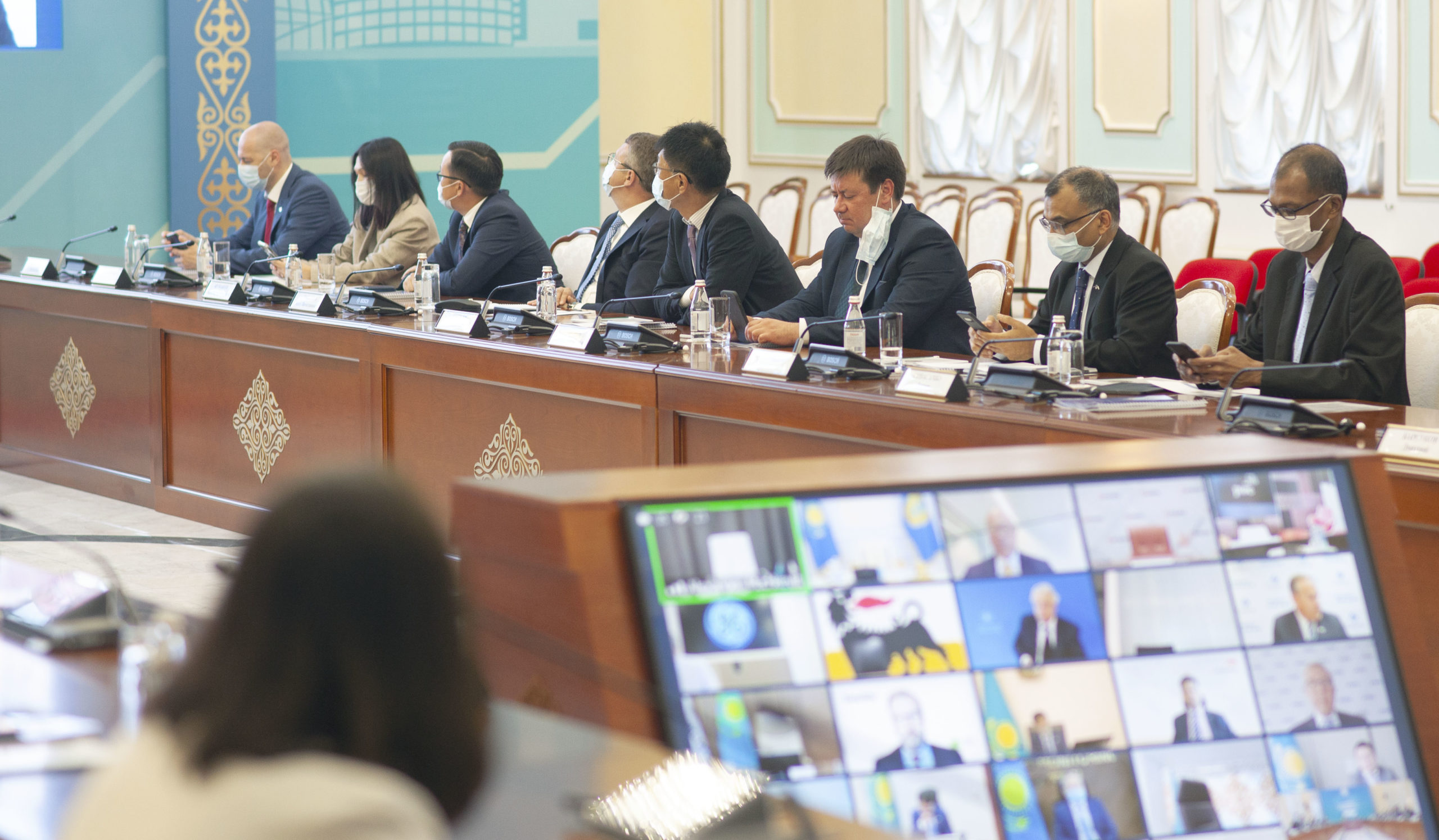 The meeting participants. Photo credit: Akorda press service
The meeting participants. Photo credit: Akorda press service
Paving a way to sustainable goals could help Kazakhstan in its effort to boost non commodity exports, according to Joerg Bongartz, Deutsche Bank CEO for Northern and Eastern Europe, which could be done through the implementation of the Environmental, Social and Governance (ESG) principles.
“ESG principles are key components of long-term value and business resiliency, as they are implemented in the strategy and measured on long-term development. In the last few years, investors around the world are increasingly paying attention not only to the financial and production performance of a company but also to the extent to which its activities correspond to the ESG principles,” said Bongartz.
Energie regenerabilă
Last week, President Tokayev revised the country’s target – bringing the share of renewable energy in the nation’s total energy grid to 15 percent by 2030 – instead of the previous ten percent.
To achieve this goal, the national legislation should be changed, said Eurasian Resources Group Chair Alexander Mashkevich. Exempting power-generating organizations that use renewable energy sources and their direct consumers from power transmission services payments could be a solution.
“This will not have a significant impact on the power transmission organizations and KEGOC (Kazakhstan’s major electricity operator), but it will give a significant boost to renewable energy development. In the future, given our country’s wealth of renewable energy resources (such as wind and solar), clean energy in various forms may become an export product of Kazakhstan, especially as part of the creation of a common energy market within the Eurasian Economic Union,” said Mashkevich
Trimiteți acest articol:
-

 Tutunzile în urmă 5
Tutunzile în urmă 5De ce politica UE privind controlul tutunului nu funcționează
-
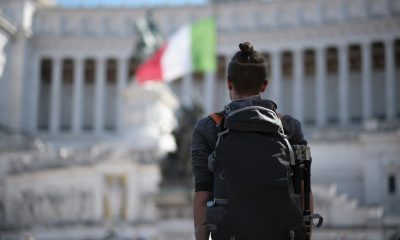
 Comisia Europeanăzile în urmă 5
Comisia Europeanăzile în urmă 5Mișcarea nu este chiar liberă oferită Regatului Unit pentru studenți și tinerii lucrători
-
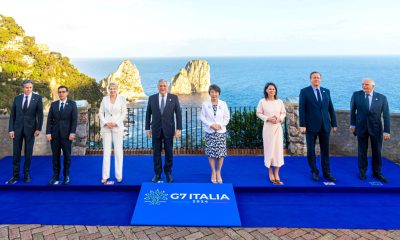
 Orientul Mijlociuzile în urmă 5
Orientul Mijlociuzile în urmă 5Reacția UE la atacul cu rachete al Israelului asupra Iranului vine cu un avertisment asupra Gaza
-

 Kazahstanzile în urmă 4
Kazahstanzile în urmă 4Călătoria Kazahstanului de la beneficiarul ajutorului la donator: Cum contribuie asistența pentru dezvoltare a Kazahstanului la securitatea regională























